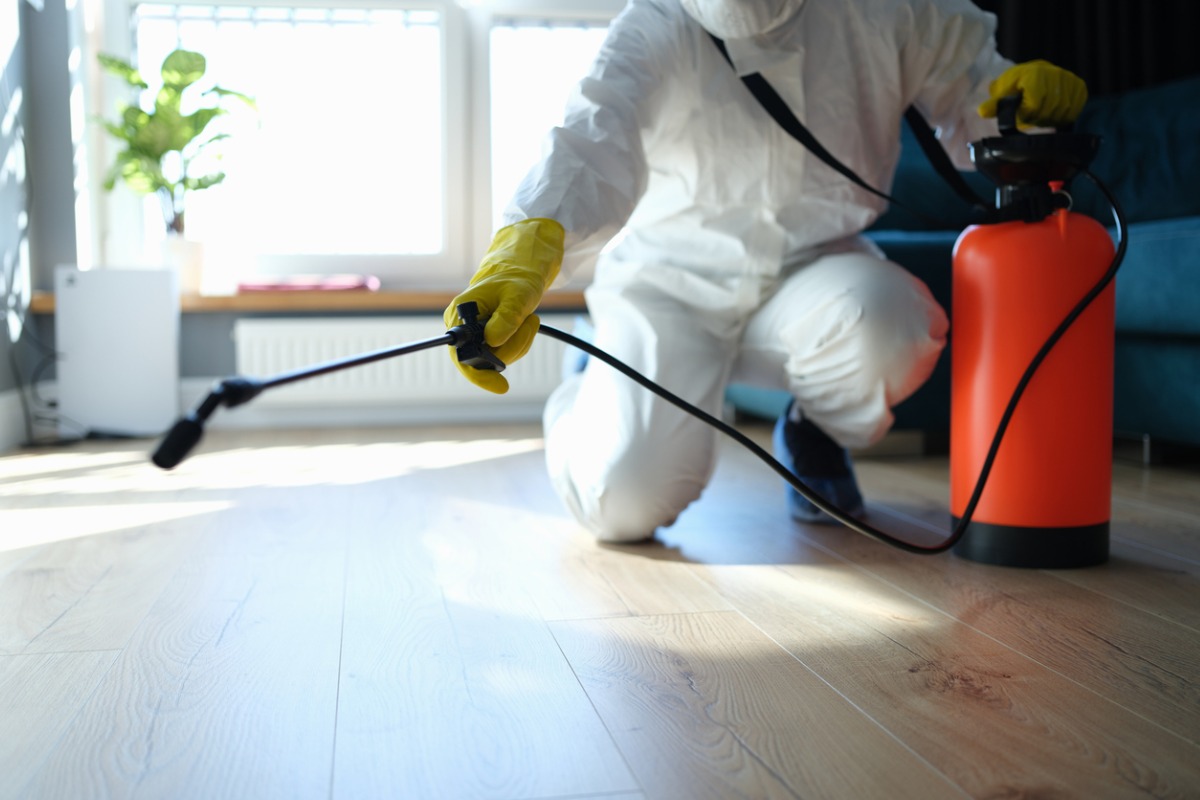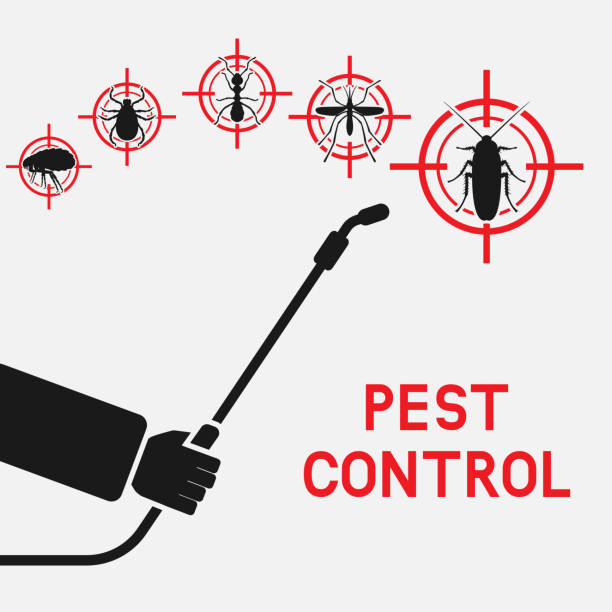Safe and Trustworthy Insect Control for Lasting Defense
Reliable pest monitoring requires a multifaceted strategy that balances environmental stability with the demand for effective pest suppression. The subtleties of these approaches may not be right away clear, triggering a better assessment of the techniques that can lead to sustainable insect control outcomes.
Comprehending Insect Control Methods
Pest control incorporates a range of techniques targeted at handling and eliminating unwanted pests and rodents that can threaten both wellness and residential or commercial property. Understanding these approaches is vital for efficient pest monitoring.
The primary groups of bug control methods consist of mechanical, biological, and chemical strategies. Mechanical techniques entail physical barriers and catches to avoid pest access and capture unwanted varieties. Using displays on home windows or employing sticky catches can significantly minimize pest populaces without presenting hazardous materials - exterminator coquitlam.

Chemical bug control is usually one of the most identified method, utilizing pesticides to eliminate insects. These chemicals can be efficient however need to be utilized with caution to prevent unfavorable impacts on non-target types and the atmosphere.
Benefits of Eco-Friendly Solutions
How can eco-friendly remedies transform parasite control methods? The adoption of environment-friendly insect control approaches uses numerous advantages, considerably boosting the efficiency and safety and security of bug monitoring.

One more benefit is the favorable effect on regional biodiversity. Environmentally friendly remedies are created to target details pests while protecting useful insects and wildlife, promoting a well balanced ecosystem. This approach aligns with the growing consumer demand for lasting techniques, boosting the reputation of pest control carriers.
Integrated Parasite Management Strategies
The implementation of environmentally friendly services naturally results in the adoption of Integrated Insect Administration (IPM) techniques, which additionally improve insect control effectiveness. IPM is an alternative method that integrates multiple tactics to manage pest populaces while decreasing ecological effect. This technique highlights the use of biological, social, mechanical, and chemical controls, making certain a lasting and well balanced technique of bug administration.
One fundamental element of IPM is the detailed analysis of insect activity and environmental problems. By keeping an eye on parasite populaces and determining their life cycles, specialists can implement targeted treatments that interrupt the pest's environment or lifecycle, minimizing reliance on chemical pesticides. In addition, cultural practices such as plant rotation and environment control can significantly diminish bug facility and recreation.
Another essential element is the use of organic control agents, such as valuable bugs or microbes, which can naturally subdue insect populaces. When chemical applications are required, IPM focuses on using low-risk chemicals and applies them uniquely, minimizing direct exposure to non-target organisms and people.
Incorporating IPM methods not only enhances parasite control effectiveness yet also advertises a safer ecological community, aligning with the expanding need for lasting practices in bug monitoring.
Safe Practices for Property Owners
Recognizing the importance of risk-free techniques in pest control can empower house termite inspection and treatment owners to properly manage bug concerns while safeguarding their health and wellness and the setting. Applying preventive measures and non-toxic techniques is critical in minimizing exposure to damaging chemicals.
Home owners need to initially analyze their setting for problems that draw in bugs, such as standing water, mess, and food waste. Regularly cleansing and securing entrance points can prevent insects from attacking the home. Utilizing all-natural deterrents, such as crucial oils or diatomaceous planet, can offer effective alternatives to chemical pesticides.
When chemical therapies are needed, property owners should choose items that are particularly labeled as secure for property use. It is vital to adhere to application guidelines meticulously to stay clear of overexposure. Making use of targeted therapies in locations where parasites are determined, rather than covering spraying, can dramatically minimize chemical use.
Last but not least, maintaining open interaction with bug control experts is vital. Home owners must ask about the safety of items used and demand green options whenever feasible. By adopting these risk-free techniques, property owners can develop a healthier living atmosphere while properly managing bug concerns.

Tips for Long-Term Security
Developing a pest administration method that highlights long-lasting defense can greatly boost the effectiveness of the risk-free methods formerly reviewed. To achieve bug control services this, house owners must apply regular evaluations of their residential property, focusing on hidden areas such as attics, basements, and crawl spaces. Early detection of insect activity is vital in protecting against problems from holding.
These methods decrease attractants that attract parasites right into the home. Sealing entry factors, such as cracks around windows and doors, can successfully block possible bug gain access to.
Landscaping needs to additionally be thought about; keeping plants cut and preserving a range in between greenery and the home decreases hiding spots for parasites. Using natural deterrents, such as crucial oils or diatomaceous planet, can further inhibit invasions without considering extreme chemicals.
Lastly, teaming up with a specialist insect control solution for periodic analyses can offer an added layer of protection. These professionals can supply tailored referrals and advanced therapies, ensuring that your home stays protected versus pests in the long term.
Verdict
To conclude, trusted and safe bug control requires a diverse strategy that emphasizes environment-friendly approaches and integrated bug management. By applying natural deterrents, conducting routine examinations, and maintaining proper cleanliness, homeowner can considerably decrease bug populaces while shielding advantageous bugs and the atmosphere. Cooperation with specialist pest control services enhances the effectiveness of these techniques, guaranteeing customized options that supply long-term defense and satisfaction versus future problems.
Reliable bug monitoring calls for a complex method that balances eco-friendly stability with the need for efficient parasite reductions. The adoption of environment-friendly bug control techniques uses various benefits, considerably enhancing the effectiveness and safety of pest monitoring.The execution of environment-friendly options naturally leads to the next page adoption of Integrated Parasite Administration (IPM) techniques, which better boost bug control effectiveness. exterminator coquitlam. By keeping an eye on insect populaces and recognizing their life cycles, professionals can carry out targeted treatments that disrupt the parasite's environment or lifecycle, decreasing dependence on chemical pesticides.In final thought, safe and reliable parasite control needs a multifaceted strategy that highlights environmentally friendly approaches and integrated parasite administration